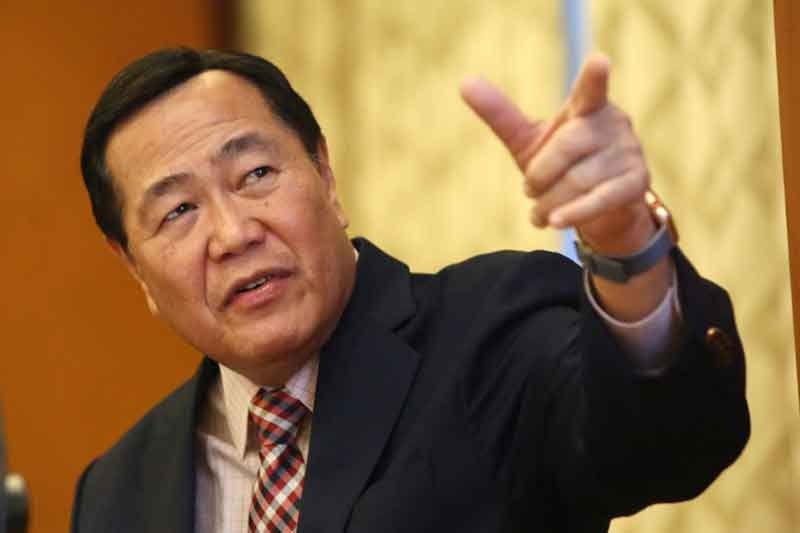Carpio: Withdrawal from ICC needs Congress nod

MANILA, Philippines — The withdrawal of the country’s membership in the International Criminal Court (ICC) cannot be done by the executive branch alone as it needs legislative approval, according to Supreme Court Senior Associate Justice Antonio Carpio.
Vice President Leni Robredo also rebutted yesterday Malacañang’s claim that President Duterte has sole discretion on the Philippines’ withdrawal from the Rome Statute, the treaty that established the ICC.
Carpio said this during the oral arguments last Tuesday night on the petitions of six opposition senators and Philippine Coalition for the International Criminal Court (PCICC) led by former Commission on Human Rights chair Loretta Rosales seeking to revoke the withdrawal.
During interpellation on counsels of the PCICC, Carpio said the President cannot just withdraw from the ICC because it is a form of treaty that cannot be repealed without approval of Congress.
“The President’s duty is to faithfully execute the law. You said that a treaty has the status of a law. So the President has to faithfully execute a treaty, correct? And to faithfully execute the treaty does not mean that he can abrogate the treaty, correct?” he stressed.
“Because you are sworn to execute the treaty, to implement the treaty, you cannot obviously repeal the treaty yourself, correct? You cannot abrogate it, correct? You cannot do anything that will prevent the implementation of execution of the treaty, correct?” Carpio pointed out.
Carpio suggested that for the ICC membership – being a treaty – to be repealed, Congress must first pass a new law for such purpose.
“If it can amend a prior law, that means if there’s inconsistency, the later treaty will prevail, isn’t that the rule now?” he said.
“When a law is passed repealing a prior treaty, you don’t even need two-thirds, you don’t need a majority of all the members, you need only a majority of the quorum ... Is that correct?” Carpio added.
The oral arguments will continue on Sept. 4 for the arguments of the senators and the answer of the solicitor general for the Palace.
President Duterte announced last March the government’s withdrawal of its ratification of the Rome Statute, citing “baseless, unprecedented and outrageous attacks” against him and his administration as the reason for his withdrawal as a state party.
The move came after ICC special prosecutor Fatou Bensouda started a preliminary examination on the alleged human rights violations amid the Duterte administration’s intensified war on drugs.
Senate approval needed
Robredo, for her part, also said “our membership in the ICC was not a sole discretion of the President. The membership is a decision of an entire body.”
“So if it’s not the sole discretion of the President to be part of it, it’s not also his sole discretion to withdraw from it,” Robredo, a lawyer, said in an interview at the House of Representatives yesterday.
“What is it that we fear in being a part of the ICC?” the Vice President said.
She said the county’s membership in the ICC also assures the people’s protection from human rights violations in their countries.
“So when the time comes that we can no longer defend ourselves (from human rights abuses), there will be other countries, who share our beliefs, to protect us,” she said.
“That’s the essence of joining such group,” she added.
Executive Secretary Salvador Medialdea on Wedenesday said Duterte, as chief architect of Philippine foreign policy, could withdraw the country from the ICC without consulting with the Senate.
Beyond ICC jurisdiction
Chief Presidential Legal Adviser Salvador Panelo said Duterte cannot be put under the jurisdiction of the ICC for alleged extrajudicial killings related to the administration’s drug war as the Philippines already withdrew from the Rome Statute.
Panelo also reiterated Duterte’s argument that the Rome Statute “did not ripen to a law simply because it was not published in the Official Gazette or in newspaper of general circulation” and thus never had the effect of a measure.
Panelo said publication “is the requirement under the new Civil Code” and that it could not be enforced in the Philippines due to purported violations of the Constitution. – With Edu Punay, Christina Mendez
- Latest
- Trending































